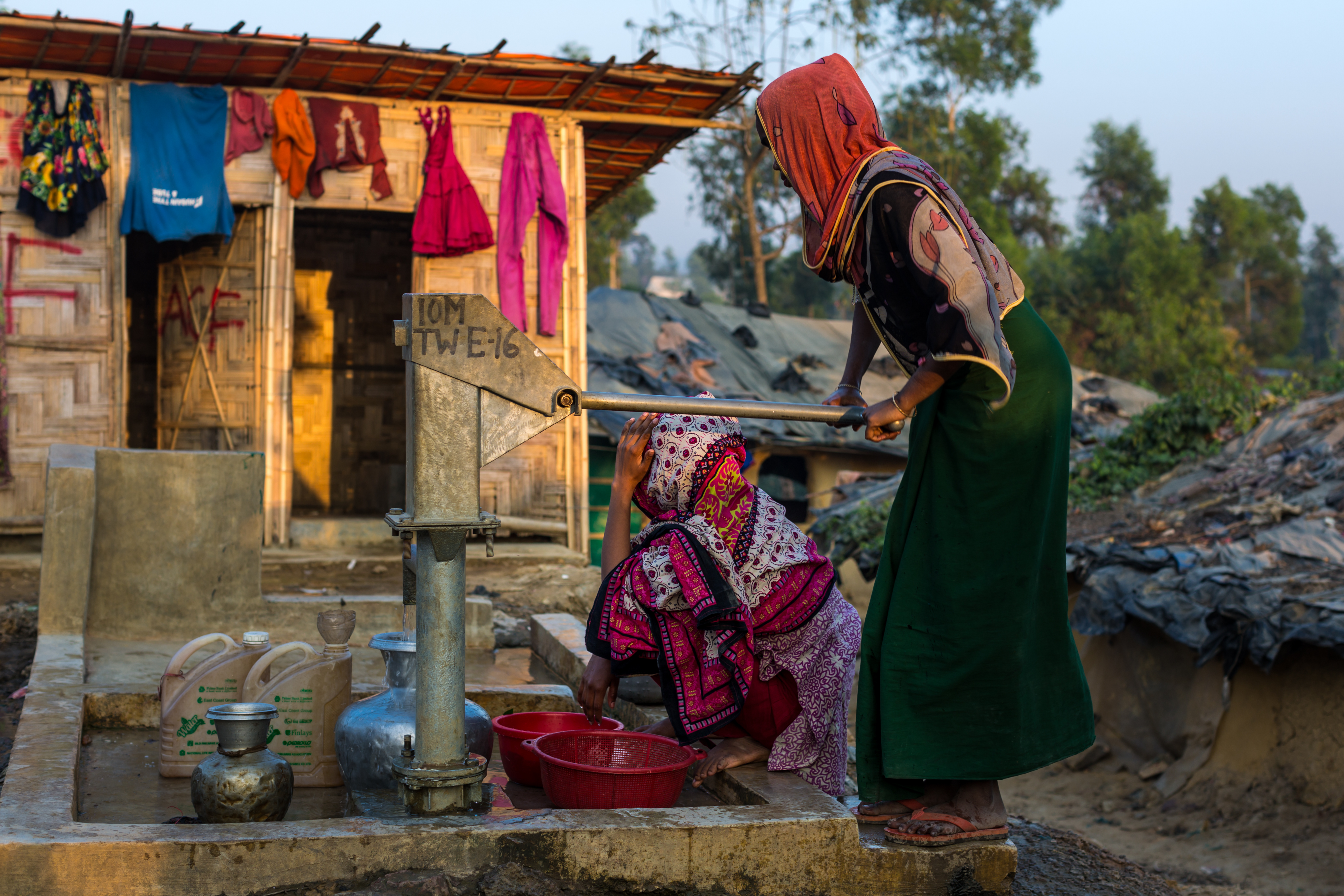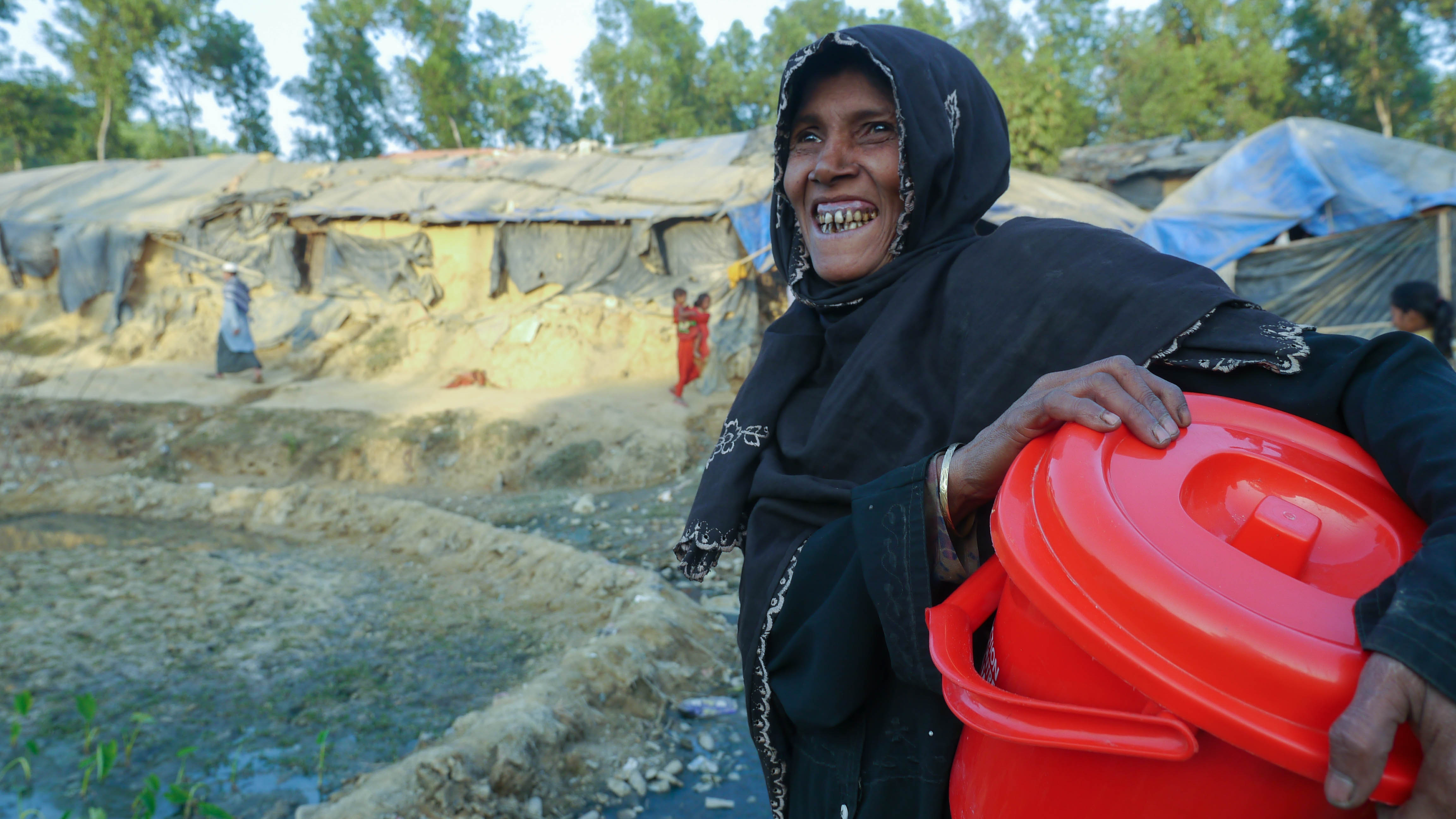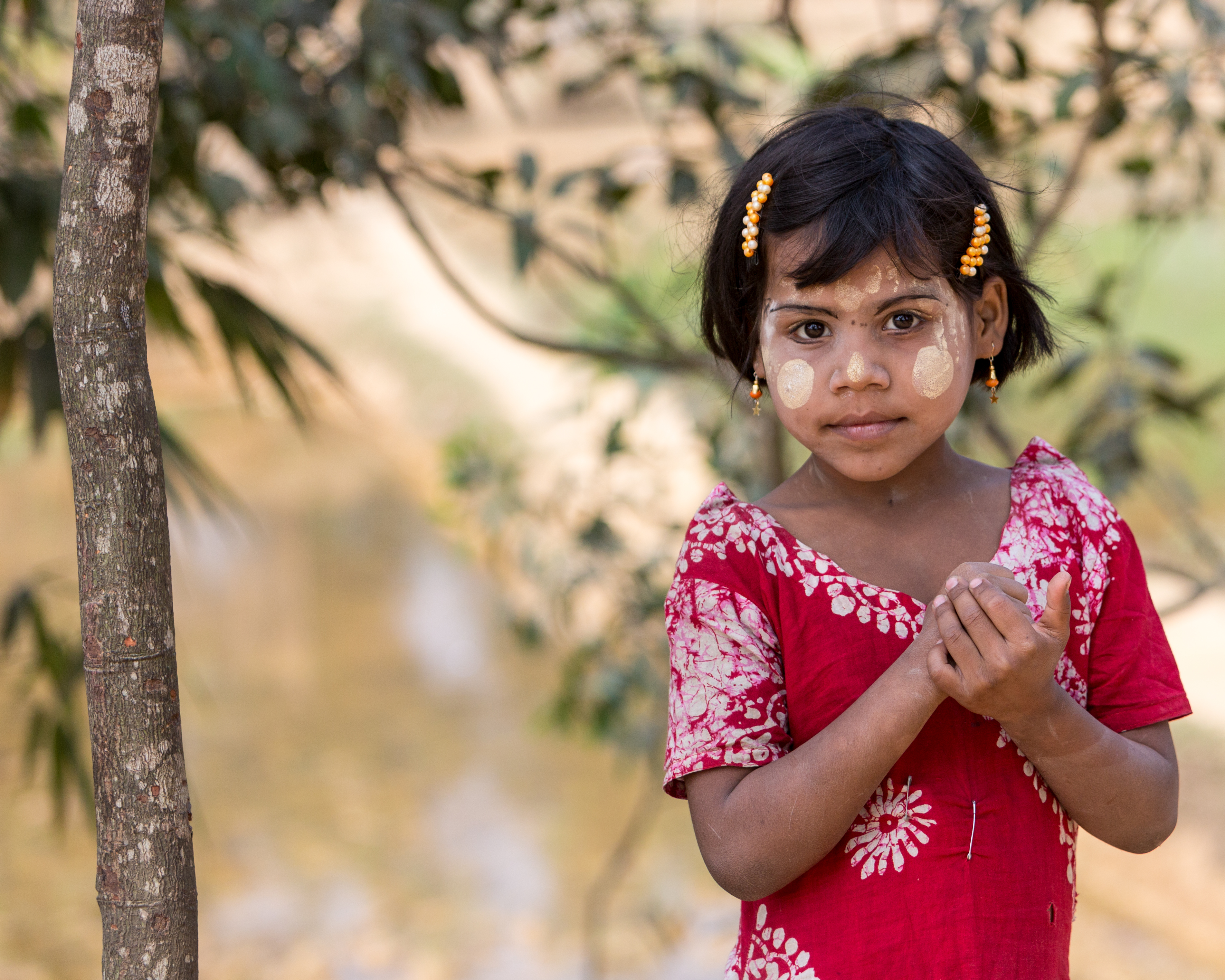
The Rohingya people are an ethnic, indigenous minority from the Rakhine State in Myanmar, a country in Southeast Asia, formerly known as Burma. Following the end of British Rule in 1948 and a military takeover, a heightened Burmese nationalism was cultivated parallel to the ostracization of the Rohingya identity because of their darker skin color and religious practices. The Rohingya, in addition to the Karen and Kachin people, among other sub-ethnic minorities in Myanmar, are not officially recognized and continue to face persecution says Myra Dahgaypaw, a human rights activist from Karen State and the Executive Director of US Campaign for Burma. Myra adds, from Law@theMargins’ recent webinar on Rohingya, “since the Burmese military adopted Burmanization in 1948, a forced assimilation to Burman on non-Burmese identities, I’ve never received a National ID Card and thus, am not considered Burmese person in my own country.” Similarly, the Rohingya have been denied citizenship and continue to be marginalized and pushed out of Rakhine State on the grounds that their homeland is Bangladesh. Historians and Rohingya groups have debunked this claim as inaccurate and that in fact, ancestral roots to Myanmar precedes the 12th century. However, this myth has been normalized as truth and led to an ongoing ethnic cleansing and genocide, making it impossible for the Rohingya to cultivate a home in their homeland Myanmar or Bangladesh, where many have been forced to take refuge in. They are not citizens of either place, which has reinforced persecution around uninterrupted access to education, healthcare, jobs, and building families.
Since August 25th, 2017, there has been an escalation in military attacks forcing over 700,000 Rohingya people to flee and seek immediate refuge in Bangladesh to escape the violence. This amounts to 90 percent of the Rohingya population, with only 79,000 remaining in the Rakhine State. Given this violence, Law@theMargins joined a global coalition of 148 human rights, faith-based, and humanitarian organizations, urgently calling on the UN Security Council to take immediate action to address the campaign of ethnic cleansing and mass atrocity crimes, including crimes against humanity, committed against the ethnic Rohingya population by Myanmar’s security forces in northern Rakhine State, as well as the continuing restrictions on humanitarian assistance throughout the state since October 2016.
For women and girls, who make up over 60% of the Rohingya refugees in Bangladesh, escaping military violence also means escaping the trauma of sexual violence and rape at the hands of the army. Women’s bodies as a genocidal weapon requires a deeper investigation to understand the gendered implications of war and ethnic cleansings. Inflicting violence that leads to degradation and shame on women’s bodies, further deeming them disposable, has directly aided the ethnic cleansing of the Rohingya.

In a report titled All of My Body Was Pain, the Human Rights Watch documents the harrowing accounts of rape and sexual abuse of survivors, 50% of whom are under the age of 18, many under the age of ten, who continue to grapple with post-traumatic stress disorder, depression, among other mental and physical health issues. Those interviewed shared countless stories of residual pain and medical complications exasperated by horrific sexual abuse and the unavailability of proper care, medicine coverage, and child services when women are visiting doctors: “Now I have urine problems. When I was at [the clinic] they gave me medicine but I didn’t properly recover my [normal urine flow].… After that I didn’t go back because I was worried about paying for medicine.” …“I still feel pain in my shoulder and chest [where they beat me] … also in my lower abdomen and back. Now my medicine is finished but I have no money to consult with the doctor, and [I can’t] leave my child home alone.”
Rape by Command: Sexual Violence as a Weapon Against the Rohingya is another report that details graphic narratives of widespread sexual violence and rape committed by “groups of soldiers, who jointly beat, held down, or tied up women and young girls, and took turns to rape them. Often this took place in front of other troops, and sometimes in front of civilians, showing clear confidence of impunity, which can only come from shared knowledge of authorization to rape.”
The survivors are forced to confront the pains of having witnessed rape and harassment of other women and girls and also the death of many. Although they’re free from attacks in Myanmar, trauma and fear persist in the Bangladeshi refugee camps because of unsafe living conditions and the dangers of human trafficking, forced sex work, and other types of exploitation. Activist Tasnima Uddin, currently in Cox’s Bazar with human rights organization Restless Beings, is especially vocal about women’s mental wellness: “most if not all of the Rohingya women Restless Beings spoke to show clear signs of post-traumatic stress disorder. They’ve all seen sexual violence perpetrated in front of them, they all have trouble sleeping. Women worry about whether or not they’ll have something to eat, if they can feed their children, and how to keep their daughters safe from child traffickers. Most end up cutting their daughters’ hair short to pass as boys for this very reason.”
United Nations Program Director for the Burma Task Force Adem Carroll, who’s been with the advocacy organization since 2013, adds that many women are also struggling with unwanted pregnancies as a result of rape. In the Ukhia Rohingya refugee camps, Bangladesh has ongoing campaigns around family planning. This is an attempt to limit the inflation of the Rohingya population and specifically trying to address the inability to accommodate an estimated 20,000 newborns in 2018. Groups in the camps are offering counseling and distributing contraceptives.
Organizations and activists, including Bangladeshi artist Dabarah Mahboob, journalist Tania Rashid, and activist Tasnima Uddin, have been on the ground to provide emotional support, therapy, self defense trainings, and more to women and girls in an effort to build community and affirm their resilience as survivors. The availability of these uninterrupted programming and resources directed toward women and girls are crucial to their survival and healing.

Even if Rohingya women and their family members find safety and refuge in countries like Canada, they face a whole new set of issues related to their gender in their new home country. During Law@theMargins’ webinar Building a Global Solidarity Campaign for Rohingya, panelist Ahmed Hashim Ullah, a Rohingya activist born in the Nayapara refugee camp in Bangladesh now based in Canada, spoke on his challenging upbringing as a child. After his father’s death, Ahmed’s mother experienced the added trauma of stigma that comes from belonging to a broken family and the stress of raising two children on her own without adequate opportunities. “My mother was mentally traumatized…we had no support and there were no welfare programs at the time.” After migrating to Canada, Ahmed and his sister were placed in foster care and separated from their mother because she was deemed “unfit to be a parent in Canadian society.” He articulated the burdens of displacement from his family and the impacts of the gendered violence that continued as refugees in Canada. “We bounced around in foster homes. After being in foster care for so long, I was finally reconnected with my [Rohingya] community in Kitchener thanks to Muslim Social Services of Kitchener-Waterloo.”
Despite the ongoing attack on Rohingya women’s bodies, the plight of genocide is still unheard of to many. During the 2018 Women’s March in New York, a group of us formed a contingent led by Burma Task Force NYC to rally in solidarity with Rohingya women. The contingent engaged passersby, many who showed solidarity fists or stopped to learn about the Rohingya, a group they knew nothing about prior to our conversation. Knowing about and responding to the Rohingya crisis should be a priority for the women’s and broader feminist movements. This moment of education was important and continues to be powerful for the advocacy around international pressure to restore Rohingya rights. While the Rohingya population in the United States is comparatively small, Adem uplifted Burmese women in the diaspora who are beginning to speak up, namely, civil rights lawyer Khin Mai Aung in New York and sister activists Khadijah and Mariam Mehter in Washington. He adds, “Burmese and other non-Burmese ethnic diaspora have a role in this discourse.” Still, larger organizing and mobilization is needed especially because Rohingya women leaders and activists, like Wai Wai Nu based in Yangon, continue to receive death threats for their advocacy.
The intersections of genocide and its gendered impact on indigenous women require a feminist response. Rohingya women bear the double-edged brunt of marginalization that comes from identifying as Rohingya and woman. The Karen Women’s Organisation, a community-based organisation of Karen women working in development and relief in the refugee camps on the Thai border with Internally Displaced Persons and women inside Burma, released a press statement denouncing the Burmese military and its attack onslaught on the Rohingya. On February 24th, 2018, women Nobel Peace laureates Shirin Ebadi (Iran), Tawakkol Karman (Yemen), and Mairead Maguire (Northern Ireland) visited Bangladesh to convene with and learn from Rohingya Muslim women who were tortured and raped by soldiers in Myanmar. In their effort to amplify Rohingya women’s voices and access to post-rape care, the laureates aspire to prioritize these accounts with Bangladeshi Prime Minister Sheikh Hasina, the Nobel Women’s Initiative, and other officials and volunteers during their trip.
In their report All of My Body Was Pain, the Human Rights Watch expands on an exhaustive list of recommendations directed toward stopping all sexual violence, including a special call on Burma to investigate and appropriately punish security forces, and providing long-term post-rape and sexual trauma care for women and children in the refugee camps. In our advocacy for Rohingya women and girls through the calamities of genocide, gender-based violences, and forced migration and displacement, we hope that all others invested in justice emphasize and prioritize their existence by any means necessary. Law@theMargins will continue to share updates.





